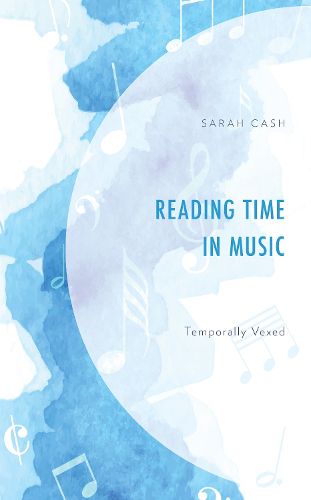Readings Newsletter
Become a Readings Member to make your shopping experience even easier.
Sign in or sign up for free!
You’re not far away from qualifying for FREE standard shipping within Australia
You’ve qualified for FREE standard shipping within Australia
The cart is loading…






In this book, Sarah Cash examines the intersection of music and temporality in British literature of the long nineteenth century. The sound spaces created at these intersections function as antimimetic resistance to hegemonic structures. Through its temporal multiplicity, music resonates in excess of linear time, revealing a metaphoric soundedness in the text that subverts reader expectation and reveals how seemingly realist nineteenth-century novels transgress the limitations of their classic narratological structures. In even the most apparently "realist" texts, the most extravagant, excessive, and hyperbolic elements exceed the bounds of what we often consider real, disrupting mimetic bias. Cash argues that music offers the most dynamic way to expose this vexed temporality in the text. Through scholarly intervention a disruption of historic classifications show that Victorians are heirs of Romanticism's musical ideals, including the power of music to penetrate and transform space and time and the permanence of sound as it reverberates beyond human perception. Scholars of nineteenth-century literature, temporality, and gender studies will find this book of particular interest.
$9.00 standard shipping within Australia
FREE standard shipping within Australia for orders over $100.00
Express & International shipping calculated at checkout
In this book, Sarah Cash examines the intersection of music and temporality in British literature of the long nineteenth century. The sound spaces created at these intersections function as antimimetic resistance to hegemonic structures. Through its temporal multiplicity, music resonates in excess of linear time, revealing a metaphoric soundedness in the text that subverts reader expectation and reveals how seemingly realist nineteenth-century novels transgress the limitations of their classic narratological structures. In even the most apparently "realist" texts, the most extravagant, excessive, and hyperbolic elements exceed the bounds of what we often consider real, disrupting mimetic bias. Cash argues that music offers the most dynamic way to expose this vexed temporality in the text. Through scholarly intervention a disruption of historic classifications show that Victorians are heirs of Romanticism's musical ideals, including the power of music to penetrate and transform space and time and the permanence of sound as it reverberates beyond human perception. Scholars of nineteenth-century literature, temporality, and gender studies will find this book of particular interest.